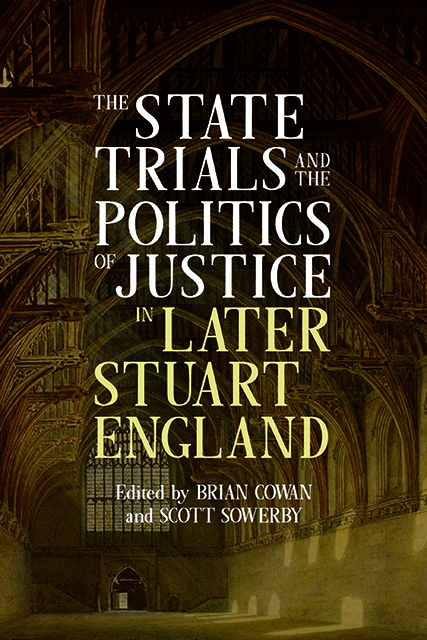11 - Defeating Innuendos: The Trials of Thomas Rosewell (1684) and Daniel Isaac Eaton (1794)
Published online by Cambridge University Press: 14 January 2023
Summary
I want to begin by arguing for reading the State Trials of England, really reading. By which I mean, if you read as many of them as you possibly can, rather than cherry-picking, which is what usually happens, you will discover astonishing riches. You will discover how the editions of 1719 (Thomas Salmon), 1730 (Solom Emlyn), 1776 (Francis Hargrave) and 1816 (Thomas Bayly Howell) were created, and how they built on each other, such as Hargrave’s decision to reprint his predecessors’ prefaces. You will discover how many different kinds of trials were considered ‘State Trials’ by the editors, not only those for treason or seditious libel, but also trials for murder, perjury, forgery and occasionally bizarre domestic cases. You will notice how the number of State Trials tended to increase exponentially in periods of political stress (surprise, surprise), such as the end of the reign of Charles II and the reign of George III in the immediate wake of the French Revolution. You will be able to compare the editorial practices of the four compilers named above, of whom Hargrave and Howell are the most interesting: Hargrave for what he added in the form of notes despite denying in his preface that he had anything to do with the edition other than letting it come out under his name; Howell for incorporating Hargrave’s notes but also including great blocks of material from contemporary historians such as Gilbert Burnet that served to explain the political context of, or responses to, the trials, thus recording an intellectual debate. There is a whole other paper to be written on this alone, because it is our entry into the question of whether these editors themselves had a political agenda. Also, if you read at least a hundred trials from different periods you will see how the lawyers changed sides over time (or from time to time), so that the concept of good guys and bad guys is imperiled. And you will realize how ubiquitous the presence of professional shorthand writers was at these trials, which also deserves a paper of its own.
One thing I do want to insist on: that we regard the State Trials as they have come down to us as a large enough body of writing sufficient to define what counts as a ‘State Trial’.
- Type
- Chapter
- Information
- Publisher: Boydell & BrewerPrint publication year: 2021



